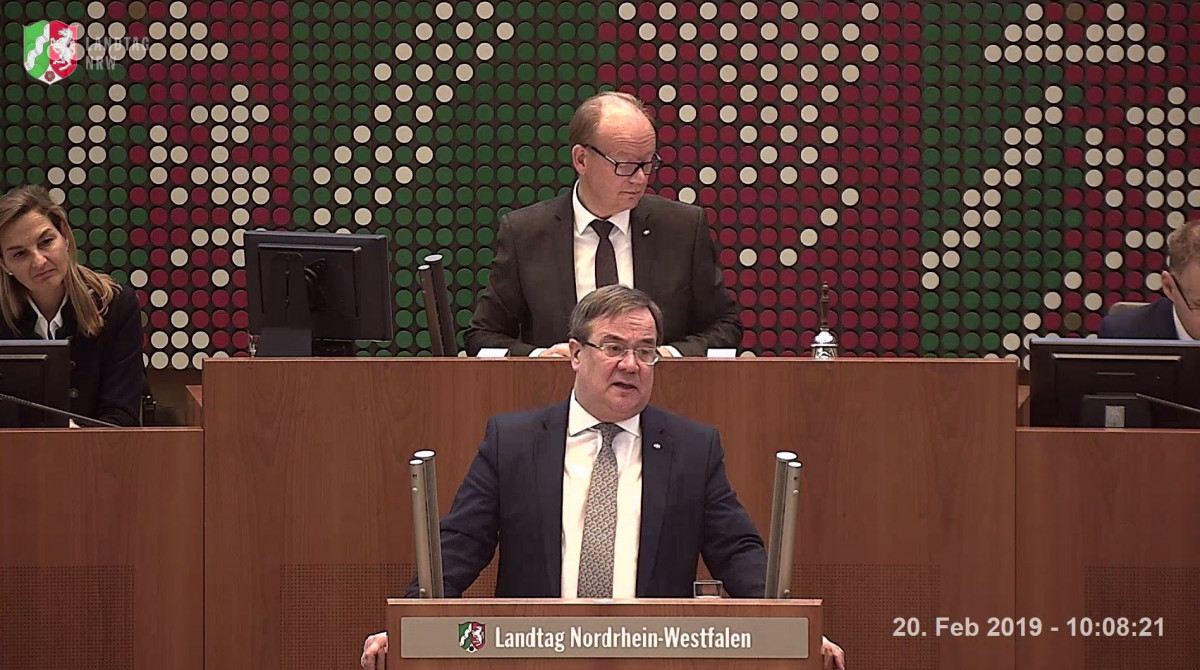RWE agrees to leave Hambach Forest untouched until 2020 – NRW state premier
The state government of North Rhine-Westphalia, one of Germany’s main lignite mining regions, has agreed with energy company and western German lignite mine operator RWE on a moratorium for clearing the embattled Hambach Forest until autumn 2020, state Premier Armin Laschet told regional representatives in a parliamentary address. “There is no danger for the forest for two years,” said the close ally of German Chancellor Angela Merkel, and called on protesters to leave the forest.
The conflict between RWE and anti-coal activists over the Hambach Forest, which the energy company says must be cut down to extend a nearby lignite mine, loomed over the coal exit commission’s negotiations in late 2018, when mass protests in the woodland put climate action at the centre of national debate. Although the commission officially said it would not meddle in current mining activities, its final report said that preserving the Hambach Forest would be “desirable”. Laschet now said he agreed with that view, adding that the forest needed to be part of the negotiations between lignite companies and the federal government over which power plants to shut down when and how to compensate the operators.
Environmental NGO Greenpeace Germany’s managing director Martin Kaiser said Laschet calling for saving the Hambach Forest is good news, but an 18-month postponement of clearing it would not be enough to “end Germany’s paralysis in climate action”.
The state premier also called on RWE "to abandon any plans for new lignite power plants once and for all."
As responsibility for German energy policy lies with the federal economy minister, it falls to him and the federal government to negotiate the phase-out timetable, Laschet made clear. The NRW state government, meanwhile, supports and is ready to “fully implement” the recommendations by Germany’s coal exit commission and the outcome of the negotiations, Laschet said.
Germany’s coal exit commission presented its long-awaited recommendations late last month, but the decision-making process on phasing out the fossil fuel in the Energiewende’s home country is far from over. Chancellor Angela Merkel’s governing coalition must now decide how to implement the proposal and draft the necessary legislation. Many details are still undecided, and the government has revealed little about its plans for the way forward. But Parliament will have the last word in the process, which could continue through the end of 2019.
In an interview with Deutschlandfunk, Laschet commented on the dispute about which plants to take offline first. “The operators will now negotiate with the federal government how many gigawatts will be taken offline in Germany, and where - whether in the East or the West or in Lusatia," he said. "If it's three gigawatts, it's three gigawatts. And if it's four, it's four, and if it's other amounts, it's other amounts. No matter the outcome we will implement it."


